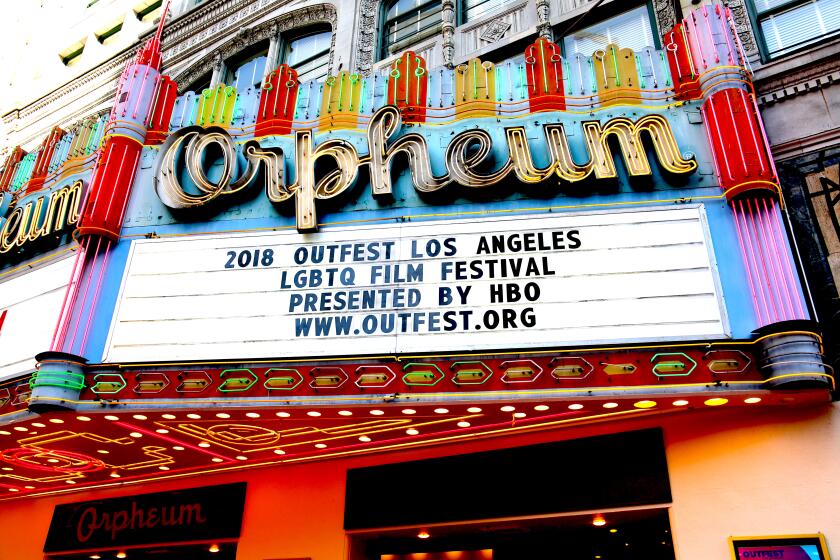What it’s like to come forward as a sexual assault survivor in the midst of a pandemic
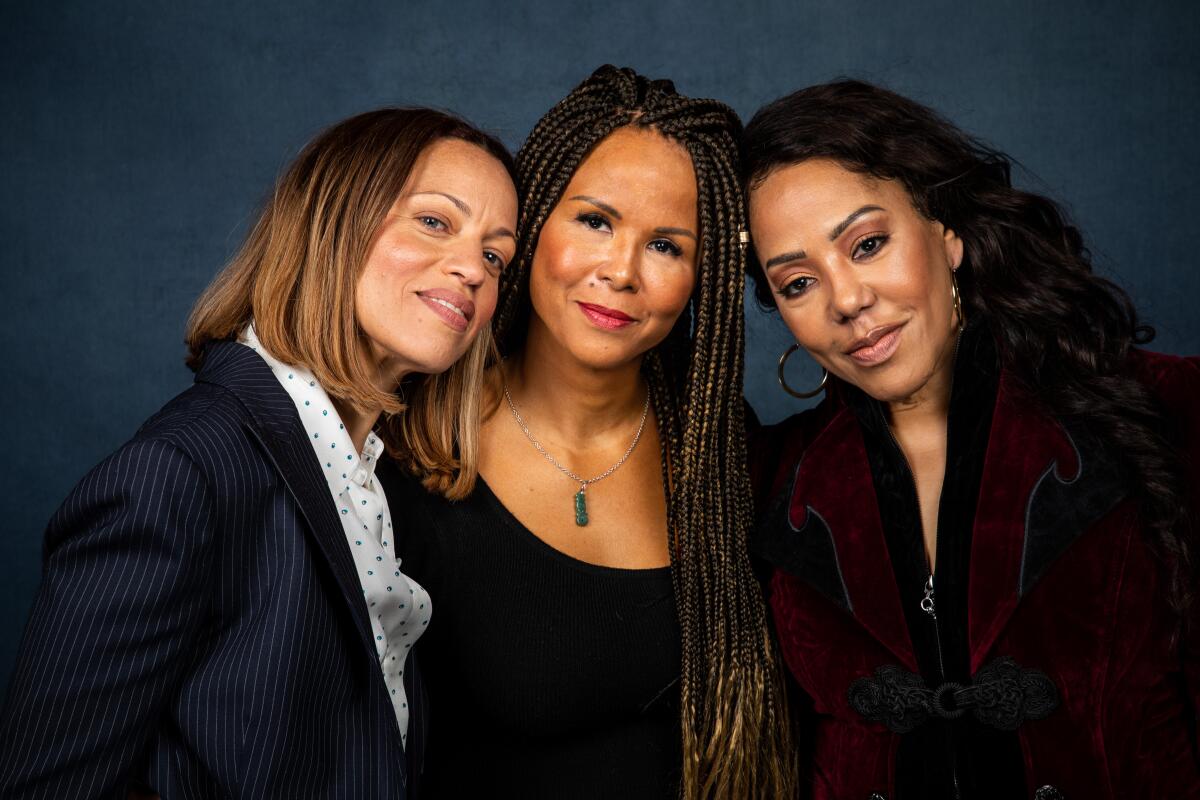
It’s been different for all of them. And for Sil Lai Abrams, it hasn’t been good.
In January, after the Sundance Film Festival ended, the 49-year-old returned to her home in Pennsylvania. She had found the trip to Utah for the premiere of a documentary she was in stressful. In the film, called “On the Record,” Abrams was one of a handful of women to detail sexual assault allegations against hip-hop mogul Russell Simmons. But just weeks before the movie was set to debut at the festival, its executive producer, Oprah Winfrey, pulled her name from the project, noting she felt more work had to be done to “illuminate the full scope of what the victims endured.”
Without Winfrey, the film’s planned release on Apple TV+ — where the Harpo Productions head has a deal — was scrapped. And Abrams — along with Drew Dixon and Sherri Hines, the other two faces of the documentary — were left worrying that their story of survival might never reach beyond the confines of a snowy mountain town.
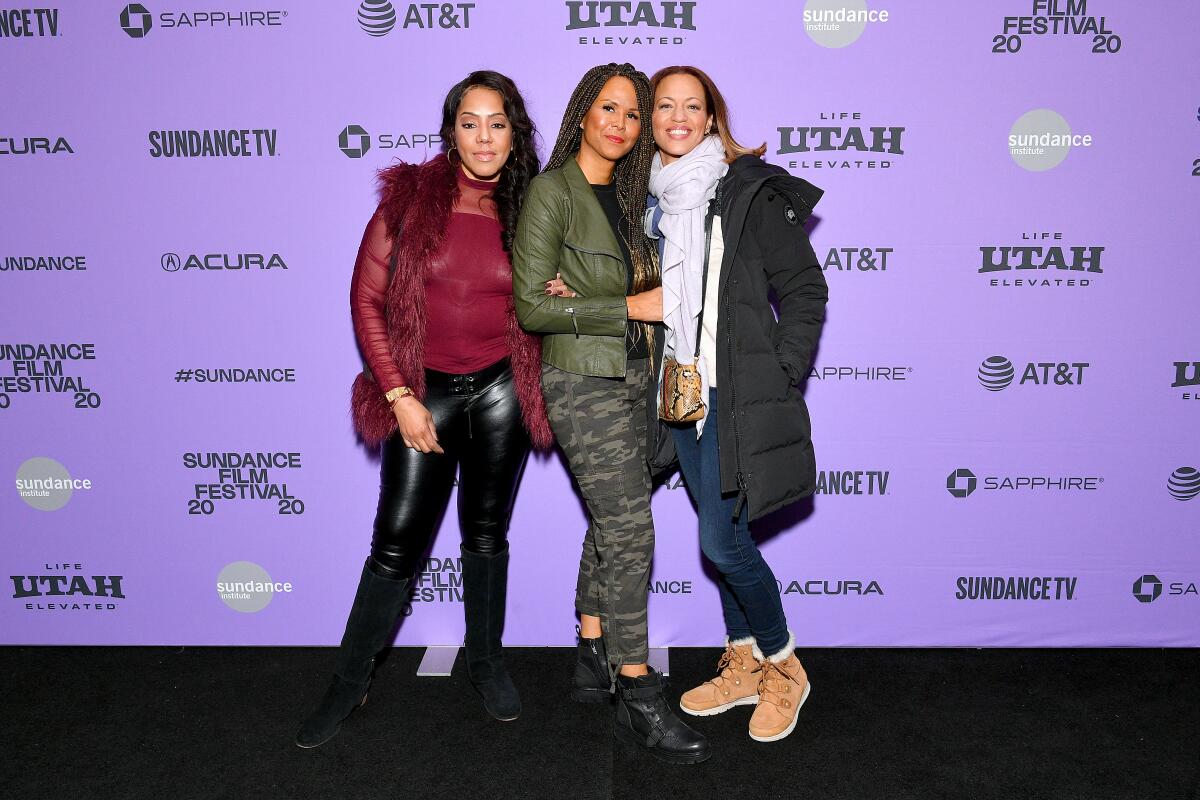
But just days after Sundance concluded, “On the Record” found a distribution partner: HBO Max, a new streaming service that launches today . The movie is the first original film to be featured on the platform, which costs $14.99 a month and offers content from both HBO and the Warner Bros. libraries.
Abrams is grateful that the movie is being released, especially in association with a “venerable brand” like HBO. But she’s also sad — resentful, even — about the way things have played out. Coming forward about Simmons has been an unpleasant experience.
When she first told her story to the Hollywood Reporter in June 2018, alleging that Simmons had raped her in New York in 1994, he adamantly denied the claim. (Simmons, best known as the co-founder of Def Jam Records, has shot down over a dozen allegations of sexual misconduct, insisting he has never engaged in nonconsensual sex.) And while Abrams was initially hopeful that she might bond with other Simmons accusers, she’s found her connections with those women have been complicated.
“We’re complete strangers who, unfortunately, have a shared experience that is rooted in a tremendous wellspring of pain,” she said. “We’re a complicated lot, and a lot of residual trauma exists within all of us. And at times, we trigger each other. And at times, we are a support to each other.”
As for the friends outside of that circle that she might reach out to for support? She’s worried about doing so in the midst of a global pandemic that has upended so many lives. She doesn’t know what her friends are struggling with. She doesn’t want to be a burden.
“To not have your family check on you and say, ‘Hey, how are you doing?’ even though you said, ‘Hey, by the way, May 27 the film is coming out’ — and then you don’t get a response?” she said. “You’re on your own, and it gets really tiring being the strong one and having to shoulder this in silence.”
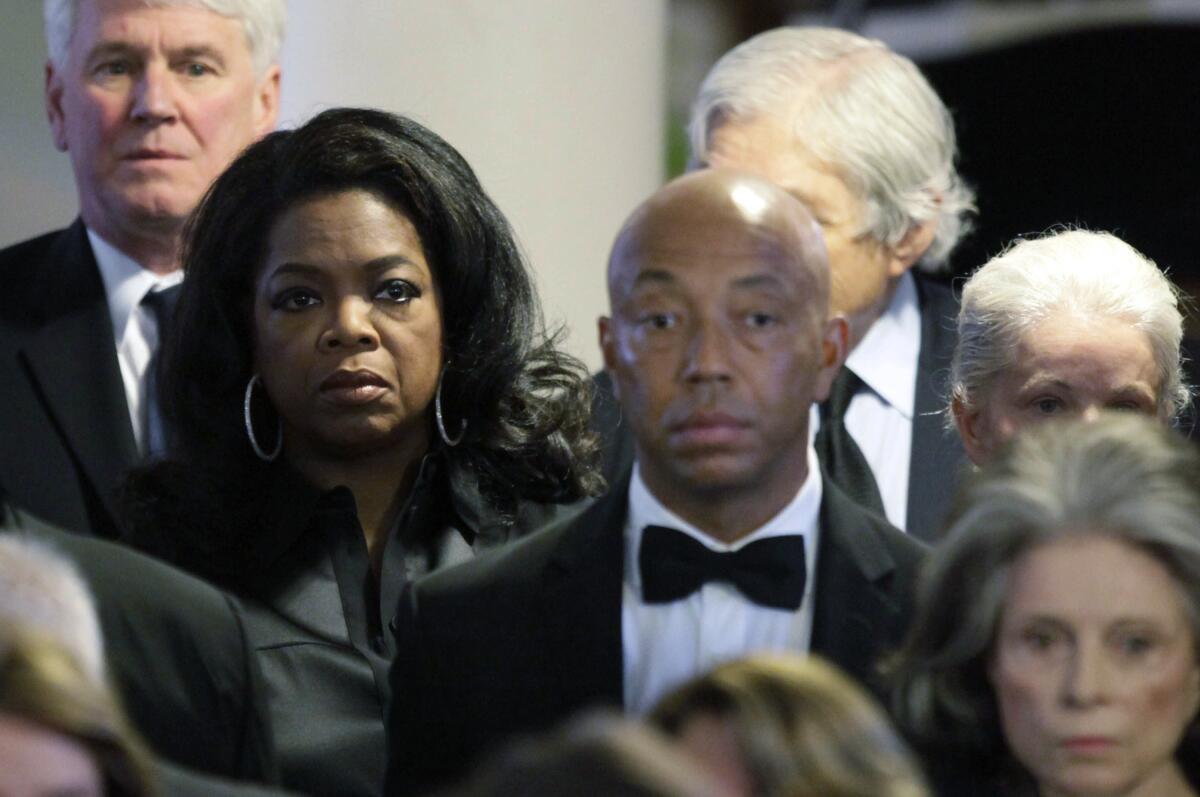
Abrams has been relying on her cat, Zora, and a trauma specialist for emotional support. The directors of “On the Record,” Kirby Dick and Amy Ziering, also said they have offered therapy to the subjects of the film and have remained in close contact with them to monitor their well-being.
“As documentary filmmakers, we feel a responsibility to be there with them and work with them and support them not only through the release, but sometimes months and years after,” said Dick, who has worked with sexual assault survivors on films including “The Hunting Ground” and “The Invisible War” with Ziering. “A bond and obligation is formed, and we feel that very strongly.”
“Some people don’t want to stay in touch — their journey was a private one, and their relationship to you was circumscribed in a certain way, and that’s fine,” added Ziering. “It’s always at the behest and initiation of the subject, not me. That’s an imposition. But if they reach out to me, I’m available.”
The HBO Max executives — who declined to be interviewed for this story — have also been in contact with some of the doc subjects. Dixon, whose decision to publicly accuse Simmons of rape is at the center of “On the Record,” recently had a Zoom meeting with the company’s higher-ups, including original content head Sarah Aubrey.
“It was all women, and I felt a connection to them that I never really felt in the months that Apple was our partner,” recalled Dixon, 49. “I didn’t feel embraced personally as a survivor by Apple or as a woman. And in this Zoom meeting, I felt so safe and supported. I truly believe we are in the best possible hands and in the best possible place.”
While Abrams openly admits to struggling to manage her anxiety and her studies at Bryn Mawr College — where she decided to study political science and sociology to broaden her job prospects — Dixon feels that “facing the trauma also unlocked [her] creativity.” She told the New York Times in December 2017 that she was raped by Simmons in his apartment when she was 24 years old. At the time, she was an executive at his record company, and the encounter ultimately led her to leave the music business altogether.
But over the last couple of years, she has begun to make music again, creating a new label called The 9th Floor and mentoring a young artist named Ella Wylde, who is seen performing in the documentary. Dixon is also exploring the idea of writing a book or making a television show. Like Abrams, she is still working with a therapist.
“I don’t want to underestimate what it’s going to feel like for a movie to come out,” she said from her apartment in Brooklyn, where her two sons had just returned home and were washing their hands in the background. “But I feel as ready as a person can be for whatever lies ahead. Part of what this journey has taught me is that I just have to be comfortable with the uncertainty of it all — with the free fall of it all...
“Obviously, what happened when Oprah and Apple exited was something that I never could have anticipated and was kind of my worst fear. And I’m still standing. And Sherri and Sil Lai and I are all still standing. I just know that whatever happens when this film comes out, I will be OK on the other side of it.”
All three women are still in touch, and when Hines was diagnosed with COVID-19 in March, she received a care package from Dixon. Hines, 59, fell ill while working as a state Supreme Court officer at the Bronx Hall of Justice. Dixon sent turmeric and ginger to her apartment, where Hines quarantined for two weeks, “sick as a dog,” steaming her face with herbs, keeping ice on her head and talking to her doctor over FaceTime.
She’s better now, but over the past week, she’s started to feel some anxiety about the release of “On the Record.” After a day full of virtual interviews, she found herself lying in bed fighting a panic attack. Hines called her sister, who advised her to take some aspirin and coached her through some deep breathing exercises until she fell asleep.
“I guess by talking about this over and over, it’s affecting me,” said Hines, who told the Los Angeles Times in December 2017 that Simmons raped her in his office around 1983. “So now I’m just trying to get a grip on that — calming myself down and taking it easy. In the time we’re living in right now, you’re going to see what you’re built of. You can have a support system on the phone, but you’re quarantined by yourself at the end of the day. When you hang up the phone, you’re still by yourself.”
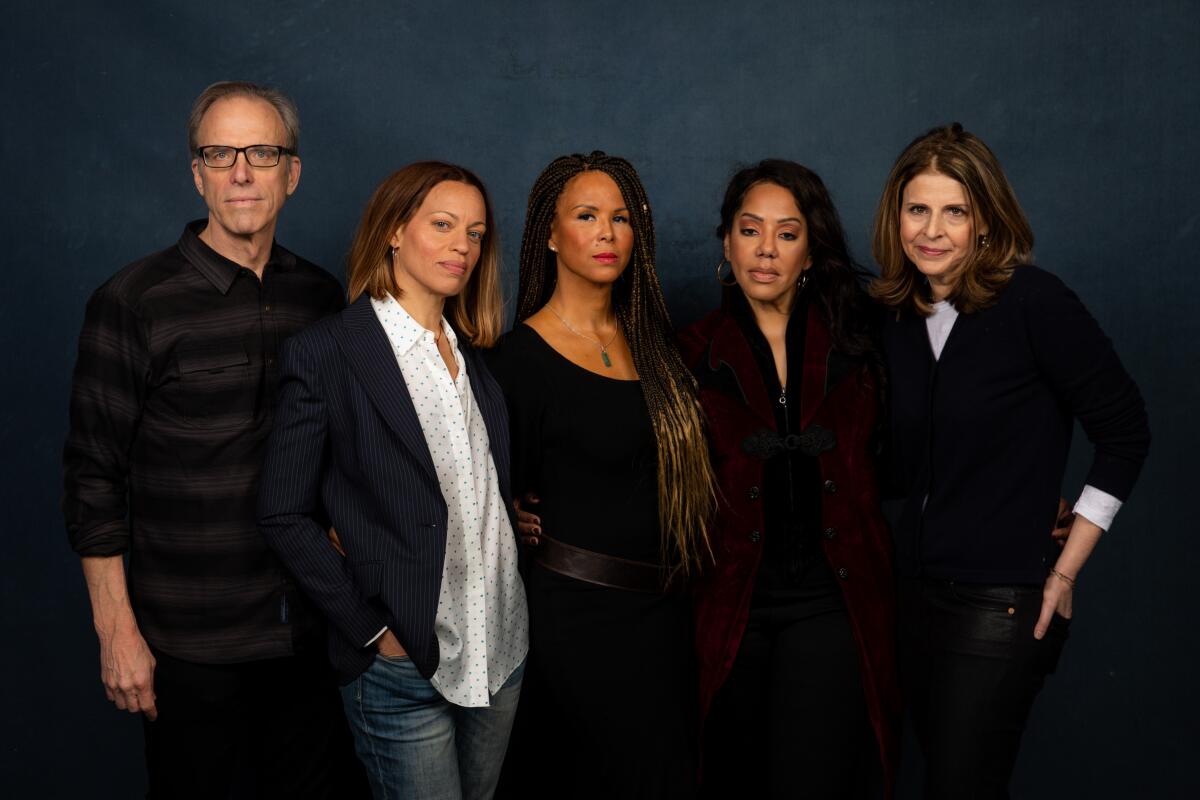
Hines, who is not a frequent social media user, said she plans to watch the film with one of her sisters on the phone or Zoom. Dixon will be screening it alone, in her living room, with her cats. She’s trying to view it as an opportunity to remember that “there’s a very personal, private part of this healing.”
“Sitting alone in my living room, I am enough. I’m strong enough to get through this,” she said aloud, sharing her mantra.
Abrams, meanwhile, is still reckoning with her feelings about participating in the film. At Sundance, she was bombarded by audience members who wanted to embrace her and react to her story. She felt like she was pushing to reach a finish line, and now that she’s crossed it, she’s met with a silence. It’s a quiet that is both welcome and haunting, she said.
“I mean, look: A lot of people would love to be heard and are never heard. So it’s an absolute privilege to be a part of this project,” she said. “But at the same time, I am looking forward to moving ahead and being able to incorporate all of these wonderful experiences — and some of the challenges — into something that will help me be of better service as an advocate and an activist.”
More to Read
Only good movies
Get the Indie Focus newsletter, Mark Olsen's weekly guide to the world of cinema.
You may occasionally receive promotional content from the Los Angeles Times.




